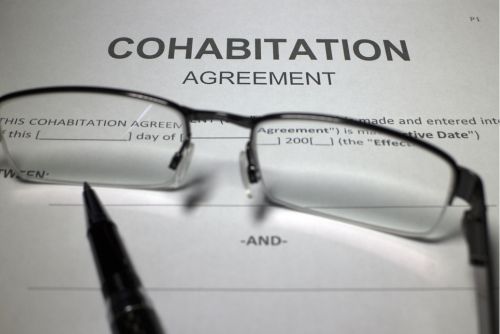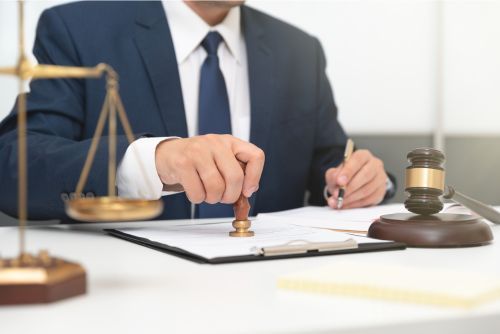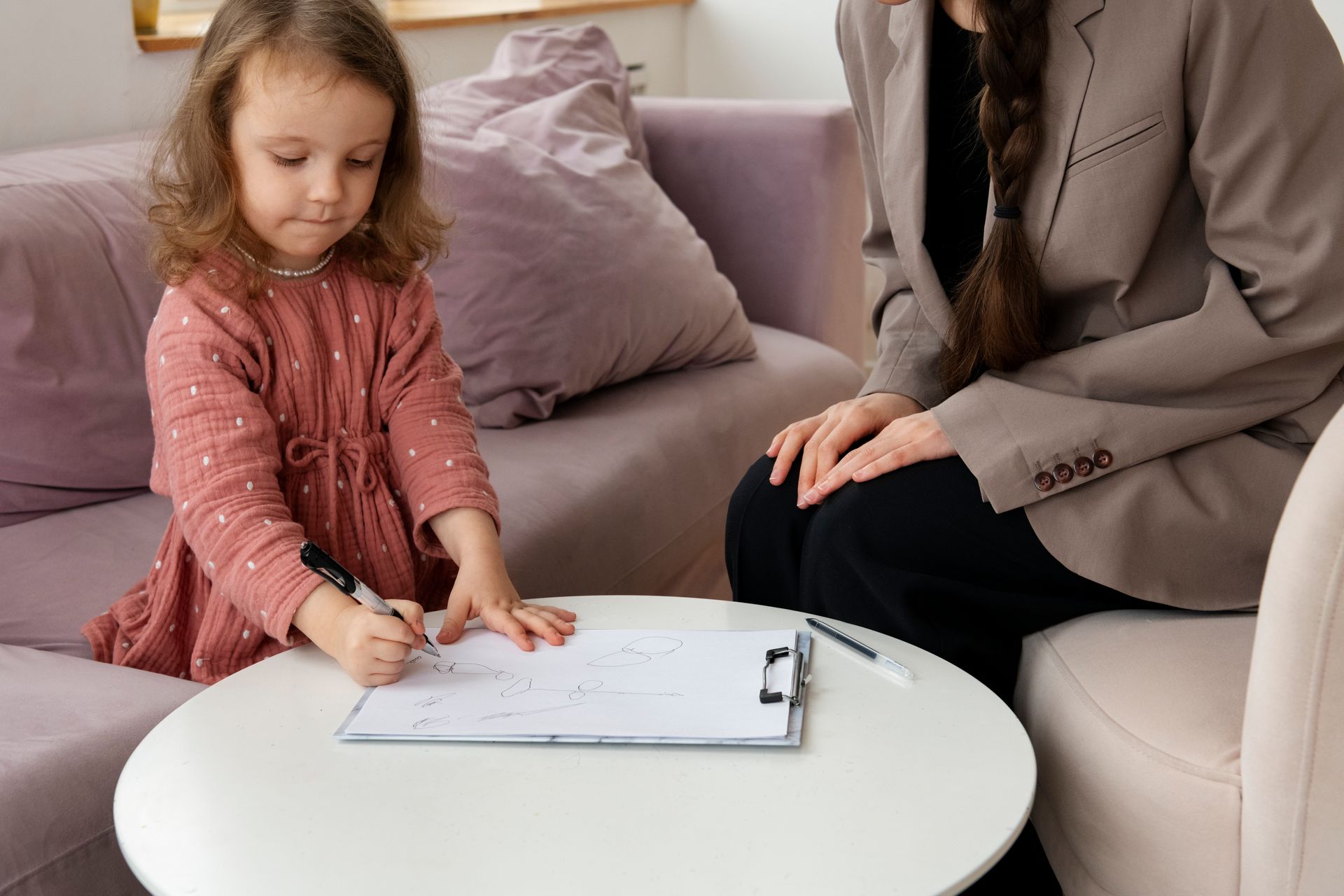How Do I Prove Cohabitation In Florida

If you are trying to prove cohabitation, then you've come to the right place. In this article, I'm going to guide you through the process of knowing how do I prove cohabitation in Florida, so that you can navigate this situation with ease and confidence.
Now, proving cohabitation can be a tricky task, but don't worry, I've got your back. We'll dive into the different types of evidence you can gather to support your claim, as well as provide you with some legal information regarding Florida divorce laws and child support guidelines.
Plus, I'll also give you tips on working with an attorney who specializes in family law matters. By the end of this article, not only will you have a better understanding of how to prove cohabitation in Florida but also feel empowered to take action towards achieving your desired outcome.
How To Prove Cohabitation
To prove cohabitation in Florida, you'll need to gather evidence of shared living arrangements and present it to the court. Proving cohabitation is essential in cases where one party seeks to terminate alimony payments based on their ex-spouse's new living situation.
It is important to note that Florida doesn't recognize common-law marriages, so simply living together doesn't automatically create legal rights and obligations like a marriage would.
When trying to prove cohabitation, one crucial piece of evidence is a cohabitation agreement. This agreement outlines the terms and conditions of the shared living arrangements between both parties. It can include details such as how expenses are divided, household responsibilities, and even plans for the future. Having a signed and notarized cohabitation agreement can be strong evidence when presenting your case in family court.
Another type of evidence that can help prove cohabitation is documentation showing joint ownership or lease agreements for a residence. This could include mortgage documents, rental agreements, or utility bills with both parties' names listed as occupants. Additionally, providing witness statements from neighbors or friends who can attest to seeing both parties regularly residing together can further strengthen your case.
In order to successfully prove cohabitation in Florida, gathering various forms of evidence is crucial. A well-documented cohabitation agreement along with supporting documentation such as joint ownership or lease agreements and witness statements will greatly increase your chances of convincing the court that you are indeed living together as a couple. These types of evidence demonstrate the shared living arrangements required to meet the burden of proof in family court proceedings without requiring any specific steps beyond collecting and presenting this information effectively.
Types Of Evidence

Legal Information
Navigating the legal landscape surrounding cohabitation requires a thorough understanding of the applicable laws and regulations.
In Florida, cohabitation can have significant implications in family law cases, particularly when it comes to alimony investigations and spousal support. To prove cohabitation in Florida, you may need to gather evidence that demonstrates a shared living arrangement between two individuals who aren't married but live together as if they were.
This evidence can include joint financial accounts, shared bills or expenses, lease agreements, or testimonies from neighbors or friends who can attest to the couple's living situation.
Family law cases involving cohabitation often require strong evidence to support claims of financial interdependence and mutual support. Private investigators are sometimes hired to gather this evidence discreetly and professionally. They may conduct surveillance or background checks on the individuals involved to uncover any hidden assets or income streams that could impact spousal support calculations.
Understanding the legal requirements for proving cohabitation is essential when seeking fair outcomes in family law matters. By gathering compelling evidence that demonstrates a shared living arrangement and financial interdependence between unmarried individuals, you can strengthen your case for modifications in alimony payments or other related issues.
With a solid understanding of Florida's cohabitation laws and access to professional help like private investigators if needed, you'll be better equipped to navigate this complex area of family law successfully.
Florida Divorce Laws

When you're ready to end your marriage in Florida, understanding the state's divorce laws is crucial.
Here are some important points to consider:
- Proving cohabitation in Florida: If you suspect that your ex-spouse is cohabitating with someone else after your divorce, you may need to provide evidence of this in court. Cohabitation can impact various aspects of your divorce settlement, such as property division and alimony orders. It's essential to gather concrete evidence, such as photographs, witness statements, or financial records that show shared expenses.
- Property division: In Florida, marital assets and debts are divided equitably between both parties during a divorce. This means that each spouse will receive a fair share based on their contributions and circumstances. However, if you can prove that your ex-spouse is cohabitating with someone else and benefiting financially from the relationship, it might affect how property is divided.
- Alimony orders: Cohabitation can also have an impact on alimony payments in Florida. If you can prove that your ex-spouse is living with someone else and receiving financial support from them, it may be possible to modify or terminate the alimony order. The court will consider various factors like the duration of the cohabitation and its effect on the recipient's need for financial assistance.
Understanding these aspects of Florida's divorce laws is essential when trying to prove cohabitation in a divorce case. By presenting compelling evidence and demonstrating how it affects property division and alimony orders, you can strengthen your position in court.
Child Support Guidelines
Imagine calculating child support payments in Florida as you consider the financial needs of your children and their well-being. Understanding the guidelines for child support is crucial, especially if cohabitation is involved. In Florida, cohabitation can affect child support calculations if it impacts the income or expenses of either parent.
To prove cohabitation, you may need to gather evidence such as shared living arrangements, joint finances, or even witness testimonies. By providing sufficient proof of cohabitation, you can ensure that child support payments accurately reflect the financial circumstances of both parents.
Florida follows specific guidelines when determining child support payments. These guidelines take into account various factors like each parent's income, health insurance costs, childcare expenses, and the number of overnights spent with each parent. However, when one parent is cohabitating with another person who contributes to household expenses or income, it can potentially impact these calculations.
If you suspect that your ex-spouse or former partner is cohabitating and not accurately reporting their financial situation during child support proceedings in Florida, gathering evidence becomes vital.
To prove cohabitation in Florida for child support purposes, it's essential to collect concrete evidence that demonstrates a shared living arrangement and intertwining financial affairs between your ex-spouse/partner and their new partner. Evidence can include joint leases or mortgages on a residence, shared utility bills or bank accounts showing contributions from both parties towards household expenses, and witness testimonies from neighbors or friends who have observed consistent patterns of living together.
Providing this evidence will help establish that there is indeed cohabitation occurring which may warrant an adjustment in the calculation of child support.
By understanding how to prove cohabitation in Florida for child support purposes and gathering appropriate evidence to substantiate your claim effectively, you can ensure that the child support guidelines are applied correctly. Once you have established this proof successfully with supporting documentation and testimonies from reliable sources, you can proceed confidently in presenting your case to the court.
With accurate child support calculations, you can provide for your children's financial needs while promoting their overall well-being. Transitioning to the subsequent section about alimony payments, it is important to consider how cohabitation may also affect spousal support determinations in Florida.
Alimony Payments

Understanding the impact of cohabitation on alimony payments in Florida is essential for ensuring fairness and accuracy in financial support arrangements. In Florida, cohabitation can have significant implications for alimony payments.
If a person receiving alimony starts living with another person and enters into a supportive relationship, it may be possible to terminate or modify the alimony payments. To prove cohabitation in Florida, evidence such as joint bank accounts, shared expenses, or even witnesses who can testify about the couple living together can be crucial.
Proving cohabitation is not always straightforward, but it is necessary to protect both parties involved in an alimony agreement. The court will consider various factors when determining whether there is a supportive relationship that justifies terminating or modifying alimony payments. These factors include financial interdependence, shared household expenses, joint ownership of property or assets, and the length of time the couple has been living together. It's important to gather as much evidence as possible to demonstrate that a substantial change has occurred in the recipient's financial circumstances due to cohabitation.
By proving cohabitation in Florida and showing that there is a supportive relationship between the recipient of alimony and their new partner, it may be possible to terminate or reduce ongoing alimony payments. This ensures fairness by preventing individuals from taking advantage of spousal support when they are no longer financially dependent on their former spouse. Understanding how cohabitation affects alimony payments allows both parties involved to make informed decisions regarding their financial obligations.
Transitioning into the subsequent section about 'factors considered in alimony,' it becomes clear that proving cohabitation is just one aspect of determining any changes needed in an existing alimony agreement. The court also takes into account other factors such as each party's income and earning capacity, contributions made during the marriage (both monetary and non-monetary), standard of living established during marriage, duration of marriage, age and health of each party, and any other relevant factors. These considerations ensure that the court can make fair and equitable decisions regarding alimony payments based on the specific circumstances of each case.
Factors Considered In Alimony
Determining the appropriate alimony payments involves considering several factors, including income, contributions during the marriage, standard of living, duration of marriage, age and health of each party, and other relevant considerations. Know more on how do I prove cohabitation in Florida in this section.
In Florida, when it comes to alimony payments, the court takes into account various factors to ensure fairness for both parties involved. These factors are essential in determining the amount and duration of alimony that should be awarded.
One important factor considered by the Florida court is the duration of the marriage. The length of time a couple has been married plays a significant role in determining alimony payments. Generally, longer marriages are more likely to result in higher or long-term alimony awards compared to shorter marriages. Additionally, the age and health conditions of each party are taken into consideration as well. If one spouse has health issues or advanced age that limits their ability to earn a substantial income, this may increase their chances of receiving higher alimony payments.
Another crucial factor is whether there was cohabitation after divorce. Cohabitation refers to living together as a couple without being legally married. In Florida, if you believe your ex-spouse is cohabiting with someone else following your divorce and this affects their financial need or ability to pay alimony, you can try proving cohabitation in court as grounds for modifying or terminating alimony payments. Proving cohabitation can be challenging but gathering evidence such as shared bank accounts or bills under both names can strengthen your case.
Determining appropriate alimony payments involves considering numerous factors such as income, contributions during marriage, standard of living, duration of marriage, age and health conditions of each party among others. These factors aim at ensuring fairness for both parties involved in an alimony dispute before a Florida court.
In addition to these considerations mentioned above, proving cohabitation becomes another important aspect when trying to modify or terminate existing alimony payments based on changed circumstances after divorce. By gathering evidence that demonstrates your ex-spouse's cohabitation with someone else, you can present a stronger case in court.
Gathering Evidence

When it comes to alimony payments in Florida, there are several factors that the court considers. These factors include the length of the marriage, each party's financial resources, and the standard of living established during the marriage.
Another important factor is whether one spouse is involved in a supportive relationship or cohabitation with another person. In order to prove cohabitation under Florida law, gathering evidence becomes crucial.
Gathering evidence to prove cohabitation can be challenging but necessary if you believe your ex-spouse is living with someone else and receiving support from them. One way to gather evidence is through surveillance or hiring a private investigator who can document activities and provide photographic or video evidence of the couple living together. Additionally, you can collect any written communication such as emails or text messages that suggest a supportive relationship between your ex-spouse and their new partner.
To further strengthen your case, you may also want to gather witness statements from neighbors or friends who have observed the couple living together. These witnesses can testify about shared expenses, joint social activities, or other behaviors that indicate a supportive relationship exists. Financial documentation such as shared bank accounts or joint ownership of property can also be valuable evidence in proving cohabitation.
Gathering evidence is crucial when trying to prove cohabitation under Florida law for alimony purposes. Surveillance footage, communication records, witness statements, and financial documentation are all potential sources of evidence that can help support your claim. However, it's important to note that proving cohabitation can be challenging due to privacy concerns and legal requirements for admissible evidence.
In the next section, we will explore some of these challenges in more detail while discussing how they impact proving cohabitation effectively without compromising privacy rights.
Challenges In Proving Cohabitation
Confronted with the challenges of proving cohabitation, you may encounter difficulties in obtaining admissible evidence that effectively demonstrates your ex-spouse's supportive relationship without compromising their privacy rights.
Proving cohabitation in Florida requires more than just a suspicion or hearsay; it demands concrete evidence that establishes a durable and continuous living arrangement between your ex-spouse and their new partner. However, this task can be daunting as the cohabitating party may actively try to conceal their living situation to continue receiving support payments. In such cases, it becomes crucial to navigate these challenges strategically.
One of the main challenges in proving cohabitation lies in gathering concrete evidence that substantiates your claims. Surveillance techniques like hiring a private investigator or utilizing electronic monitoring devices can provide valuable proof, but they must be conducted within legal boundaries to avoid violating privacy rights. Additionally, financial records such as shared bank accounts or joint credit card statements can serve as compelling evidence of cohabitation. However, obtaining access to this information might require court intervention if your ex-spouse refuses to cooperate.
Another obstacle is demonstrating that the supportive relationship has reached a level where alimony should be terminated. Cohabitation alone may not suffice; you need to establish that your ex-spouse and their new partner share household expenses, engage in domestic activities together, or present themselves publicly as a couple. It is essential to gather witness testimonies from neighbors, friends, or family members who can attest to the nature of the relationship and provide firsthand accounts of the cohabitants' behavior.
Confronted with these challenges, it's vital to approach proving cohabitation diligently while respecting legal boundaries and privacy rights. By employing creative investigative techniques and building a strong case with credible evidence such as financial records or witness testimonies, you increase your chances of successfully terminating alimony based on proven cohabitation in Florida.
Now let's delve into some tips for proving cohabitation without compromising privacy rights or jeopardizing the admissibility of evidence.
Tips For Proving Cohabitation

To effectively gather evidence of your ex-spouse's supportive relationship, consider utilizing creative investigative techniques and building a strong case with credible evidence. Proving cohabitation can be challenging, but there are several tips that can help you establish cohabitation in Florida.
One effective method is to hire a private investigator who specializes in surveillance. They can discreetly monitor your ex-spouse's residence and document any signs of them living together with their new partner.
Additionally, you can collect evidence from neighbors or friends who may have noticed the presence of your ex-spouse's partner at their home on a regular basis.
Another tip is to keep track of any joint expenses or financial arrangements between your ex-spouse and their new partner. This could include shared bills, joint bank accounts, or even receipts for purchases made together. These financial ties can serve as strong evidence of cohabitation, as they demonstrate a level of commitment and intertwining of lives that goes beyond mere dating.
Furthermore, it's important to document any social media activity that suggests cohabitation. Posts or photos showing them spending significant amounts of time together at one person's residence can be valuable evidence. Additionally, if there are public posts where they refer to each other as partners or discuss living arrangements, these can further strengthen your case.
Proving cohabitation in Florida requires gathering credible evidence that demonstrates your ex-spouse is living together with their new partner. By employing creative investigative techniques such as hiring a private investigator and documenting joint expenses, along with monitoring social media activity relevant to their living situation, you can build a strong case.
This will increase your chances of successfully proving cohabitation in court and potentially impacting matters such as alimony or child support payments without compromising the subsequent section about the importance of documentation.
Importance Of Documentation
Make sure you keep meticulous records and gather solid evidence to strengthen your case regarding the importance of documentation.
When it comes to proving cohabitation in Florida courts, documentation is key. It serves as tangible proof of your living arrangements and can greatly influence the outcome of your case. By providing detailed records, such as joint bank accounts, shared bills, or lease agreements, you're establishing a strong foundation for your claim.
Documentation plays a crucial role in convincing the court that you indeed live together with your partner. It demonstrates a level of commitment and intertwining of lives that goes beyond mere dating or friendship. The more evidence you can provide, the better chance you have at successfully proving cohabitation. This is why it's essential to keep track of important documents and maintain thorough records throughout your time living together.
The importance of documentation cannot be overstated when trying to prove cohabitation in Florida courts. By gathering solid evidence and maintaining meticulous records, you significantly increase your chances of success in presenting a strong case.
Next, let's explore how working with an attorney can further enhance your chances of achieving a positive outcome in this matter without writing 'step'.
Working With An Attorney

Consider partnering with an attorney to maximize your chances of a favorable outcome when working through the process of proving cohabitation in Florida courts. An attorney who specializes in family law will have extensive knowledge and experience in dealing with cases involving cohabitation. They can guide you through the legal complexities, ensuring that you gather all the necessary evidence and present it effectively in court.
Having an attorney by your side can significantly increase your chances of success. They will help you navigate through the intricate legal system, ensuring that you meet all the requirements for proving cohabitation in Florida. From gathering documents and witness statements to presenting compelling arguments, your attorney will work tirelessly to build a strong case on your behalf.
By working with an attorney, you can also benefit from their negotiation skills. In some cases, it may be possible to reach a settlement outside of court by demonstrating strong evidence of cohabitation. Your attorney can help negotiate fair terms that protect your interests while avoiding lengthy litigation processes.
Partnering with an experienced attorney is crucial when trying to prove cohabitation in Florida courts. Their expertise and guidance will greatly enhance your chances of achieving a favorable outcome. With their assistance, you can confidently navigate the legal process, knowing that you have someone advocating for your rights and fighting for the best possible resolution without undue stress or delays.
Possible Outcomes
Imagine the relief and satisfaction you'll feel when the court recognizes your efforts and grants you the legal rights and benefits that come with proving cohabitation.
Proving cohabitation in a Florida case can have several possible outcomes, each with its own implications.
Here are three potential outcomes that you should consider:
- Successful Case: If you're able to provide sufficient evidence to prove cohabitation, the court may rule in your favor. This could result in various positive outcomes, such as being awarded spousal support or alimony payments. It's important to gather strong evidence, such as shared financial responsibilities, joint leases or mortgages, utility bills in both names, or witness statements attesting to your living arrangements.
- Partial Success: In some cases, while you might not be able to prove full cohabitation, you may still be able to demonstrate a substantial level of interdependence between yourself and your partner. This could lead to a partial success outcome where the court acknowledges your relationship and provides certain benefits but falls short of granting full spousal support or alimony.
- Unsuccessful Outcome: Unfortunately, there's also the possibility that despite your best efforts, you may not be able to prove cohabitation convincingly enough for the court. In such cases, it's crucial to consult with an attorney who can help explore alternative strategies or other avenues for seeking support.
Proving cohabitation can have significant implications on your case in Florida. However, it's important to keep in mind that these outcomes aren't set in stone and will depend on various factors specific to your situation.
Other Considerations

Let's delve into additional factors to keep in mind when navigating this topic in the Sunshine State. When it comes to proving cohabitation in a Florida divorce, it's important to consider the impact it may have on alimony payments.
Cohabitation refers to living with a new partner as if married, and if you can provide evidence of this, it could potentially lead to a termination or reduction of alimony. However, it's crucial to understand that simply showing that your ex-spouse is living with someone else may not be enough. You'll need to demonstrate that they are in a supportive and intertwined relationship akin to marriage.
In addition to providing proof of cohabitation, other considerations may come into play during your case. For example, the duration of time since the divorce was finalized can affect how the court views your claim. If you're seeking termination or modification of alimony based on cohabitation, it's generally recommended that you act promptly after becoming aware of the situation. Waiting too long might weaken your argument and make it more difficult for the court to grant your request.
It's also worth noting that each case is unique, and there are no guarantees when it comes to proving cohabitation in Florida divorces. Consulting with an experienced attorney who specializes in family law can provide valuable guidance and increase your chances of success. They can help gather evidence, navigate legal procedures, and ensure you're well-prepared for any challenges that may arise along the way.
With proper resources and support from professionals who understand the intricacies of Florida divorce laws, you'll be better equipped to present a strong case for terminating or modifying alimony based on cohabitation without delay.
Now let's explore resources and support systems available for individuals going through a divorce in Florida.
Resources And Support
Take advantage of the resources and support systems available to help you navigate through the divorce process in Florida. When it comes to proving cohabitation, it's essential to gather as much evidence as possible.
One valuable resource is hiring a skilled attorney who specializes in family law. They can provide guidance on the specific requirements and documentation needed to prove cohabitation in Florida courts. Additionally, they can guide you on how to collect evidence such as photographs, witness statements, or financial records that demonstrate shared living arrangements.
Another important resource is seeking emotional support from friends, family, or support groups. Divorce can be a challenging and emotionally draining process, so having someone to lean on during this time can make a significant difference.
These individuals can provide not only emotional support but also practical advice based on their own experiences with divorce or cohabitation cases. They may even be able to recommend other resources such as therapists or counselors who specialize in helping individuals going through a divorce.
In addition to professional and personal support, there are online resources available that provide information and guidance on proving cohabitation in Florida divorces. Websites such as legal forums or blogs dedicated to family law often have discussions or articles related to this topic.
These platforms allow you to connect with others who have gone through similar situations and share their strategies for proving cohabitation successfully.
By utilizing these support systems and resources available in Florida, you can increase your chances of effectively proving cohabitation during the divorce process. Remember that each case is unique, so it's crucial to consult with professionals who understand the intricacies of family law in Florida specifically.
With their assistance and the emotional support from loved ones and online communities, you'll be better equipped to navigate this challenging journey towards resolution and move forward with your life confidently.
Summing Up
In conclusion, processing how do I prove cohabitation in Florida can be a challenging process, but with the right evidence and legal information, it's possible to achieve a favorable outcome. By gathering various types of evidence such as financial records, shared bills, and witness statements, individuals can strengthen their case and demonstrate that they're living together as a couple.
It's also crucial to understand Florida divorce laws and child support guidelines to ensure that all necessary legal requirements are met.
Working with an experienced attorney can greatly enhance one's chances of success when trying to prove cohabitation. An attorney will have knowledge of the specific laws and regulations in Florida and can guide individuals through the process step by step. They can also provide valuable advice on how to gather the most compelling evidence and present it effectively in court.
It's important to keep in mind that each case is unique, and there may be other factors that need to be considered when proving cohabitation. This could include issues such as custody arrangements or alimony payments. It's essential for individuals going through this process to seek out resources and support from trusted professionals who can provide guidance along the way.
Overall, while proving cohabitation in Florida may require careful planning and strategizing, it's possible with the right approach. By understanding the necessary steps involved, gathering strong evidence, working with an attorney, and seeking support when needed, individuals can navigate this challenging process successfully.
Frequently Asked Questions
Can I Use Social Media Posts As Evidence Of Cohabitation?
Yes, social media posts can be used as evidence of cohabitation in Florida. As someone who has a subconscious desire for innovation, you'll be pleased to know that the legal system is evolving to adapt to the digital age.
Social media has become an integral part of our lives, documenting our daily activities and relationships. When it comes to proving cohabitation, these online platforms can provide valuable insight into the shared living arrangements between individuals.
Whether it's photos together, check-ins at the same location, or public declarations of their living situation, social media posts can help establish a pattern of cohabitation. However, it's important to note that simply having social media posts may not be enough on their own - they should be accompanied by other forms of evidence such as joint bank statements or utility bills to strengthen your case.
But rest assured, with the increasing reliance on technology and social media in our lives today, these online footprints can certainly contribute towards proving cohabitation in Florida.
How Long Do I Have To Prove Cohabitation In A Divorce Case?
To answer the current question, the time frame for proving cohabitation in a divorce case can vary depending on the specific circumstances and the court's discretion.
It's important to gather evidence as soon as possible to strengthen your case. This might include documenting shared living arrangements, joint financial obligations, or even witness testimonies.
Remember that innovation and creativity can play a significant role in how you present your evidence; think outside the box to find unique ways of demonstrating cohabitation. Whether it's through technology or unconventional methods, finding innovative ways to prove cohabitation can give you an edge in your divorce case.
What Happens If I Am Unable To Gather Enough Evidence Of Cohabitation?
If I'm unable to gather enough evidence of cohabitation in a divorce case, it can certainly be frustrating. However, don't lose hope because there are still other avenues to explore.
One option is to consult with an experienced attorney who specializes in family law and has dealt with similar situations before. They may be able to provide guidance on alternative ways to prove cohabitation or suggest strategies that could strengthen your case.
Additionally, it might be beneficial to consider gathering more evidence or seeking the assistance of a private investigator who can help uncover any hidden information.
Remember, divorce cases can be complex, and sometimes thinking outside the box is necessary when traditional methods fall short. It's crucial to remain determined and open-minded in order to achieve the best possible outcome for your situation.
Can I Hire A Private Investigator To Gather Evidence Of Cohabitation?
Yes, you can absolutely hire a private investigator to gather evidence of cohabitation. They're skilled professionals who specialize in uncovering the truth and collecting concrete evidence.
Hiring a private investigator can be an innovative solution to your problem. They have access to resources and techniques that you may not be aware of. With their expertise, they can conduct surveillance, interviews, and background checks to gather the necessary evidence needed for your case.
By utilizing their services, you can increase your chances of proving cohabitation in Florida and achieving the desired outcome.
What Are The Potential Consequences If Cohabitation Is Proven In A Divorce Case?
If cohabitation is proven in a divorce case, the potential consequences can vary depending on the specific circumstances and the laws of the state.
In general, however, proving cohabitation can have significant implications for the division of assets and spousal support. Cohabitation may be seen as evidence that one spouse no longer needs financial support or is capable of supporting themselves, which could affect any alimony payments that were previously awarded.
Additionally, if there are children involved, proving cohabitation could impact child custody arrangements and visitation rights.
It's important to consult with a knowledgeable attorney to understand how these consequences may apply to your specific situation and jurisdiction.













